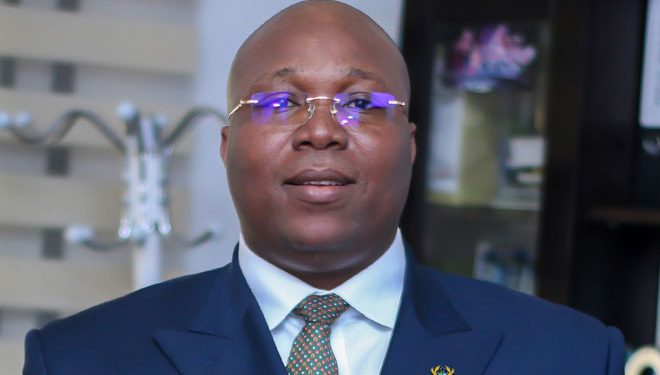
The Economic and Organized Crime Office (EOCO) on Wednesday granted bail to the Chief Executive Officer (CEO) of defunct Ideal Finance Company, Nii Kotei Dzani.
Mr Dzani was invited last week for questioning over some depositors’ funds which have been unaccounted for.
The Council of State member yesterday appeared at the EOCO for more probe into his role in the disappearance of the funds.
EOCO sources say Mr Dzani was made to submit some documents as part of his bail condition, documents the investigative body intends to authenticate later today.
Reports emerged on Wednesday that the Ideal Finance boss had been detained at the Police Station for some hours before being released on bail.
He, however, denied the reportage.
Ideal Finance was part of the 23 insolvent savings and loans companies and finance houses whose licenses were revoked by the Bank of Ghana months ago.
The revocation was because the company had become insolvent even after a reasonable period within which Central Bank had engaged with it in the hope that they would be recapitalized by their shareholders to return them to solvency.
Why was Ideal Finance’s license revoked?
Ideal Finance Limited was incorporated in 2009 under the Companies Act, 1963 (Act 179 and licensed by the Bank of Ghana under the Non-Bank Financial Institutions Act, 2008 (Act 774 as a money lending company.
The company was subsequently licenced to carry on the business of a finance house on 18th December 2014 and established its head office at East Legon in Accra.
Ideal Finance has been faced with severe insolvency and liquidity challenges over the past two years.
The Institution faced a significant capital shortfall with a Capital Adequacy Ratio (CAR) of negative 33% in breach of the minimum required of 13% with a corresponding capital deficit of negative Ghc188,257,625.35.
The institution was also facing a severe liquidity crisis with numerous complaints received by the Financial Stability Department of the Bank of Ghana from aggrieved customers who have been unable to access their deposits with the institution for the last several months.
What is more, it had consistently failed to meet the minimum cash reserve requirement of 10% of its total deposits.
The Institution’s shareholders also failed to restore the bank to the required regulatory capital and liquidity levels in spite of long-standing promises that new capital was expected from foreign investors.
